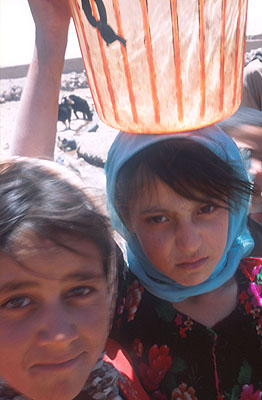
justice, peace & creation concerns
ecumenical earth
climate change / water / biotechnology / economic globalization & ecology
|
The UN Decade on Fresh Water (2005-2015) points to the fact that water is a vital ingredient for both the diversity of life on earth and for human well-being. Access to fresh water supplies is becoming an urgent matter of life and death across the planet. The world is on the verge of a serious water crisis in which the survival of many communities in various parts of the globe is at risk. Biodiversity is also threatened by the depletion and pollution of fresh water resources. There are two dimensions to the current crisis: the effects on the ecology of the planet and the injustice facing particular vulnerable communities in South and North. |
|
|
At the same time fragile ecosystems are under direct threat. These include loss of marine species due to pollution and over-fishing; water levels of underground courses and lakes dropping due to excessive extraction; wetlands drying out prompting the death of flora and fauna. Churches, church-related agencies and ecumenical organisations have formed an Ecumenical Water Network to improve their co-operation in response to these challenges.
Pressing issues Water should be treated as a social good and a human right rather than as a commodity or commercial product. It must be ensured that there are affordable pricing systems under public accountability. The costs to consumers should be re-directed to the benefit of the community rather than for private profit. Solidarity with vulnerable communities As members of the Body of Christ it is imperative to live in mutual support of one another. Special attention should be paid to those who are the most vulnerable. The equitable sharing of water is an essential expression of global solidarity and a practical response to the commandment to create a just society together. Furthermore, the lifestyle of vulnerable human (and non human) communities, often more sensitive to the natural rhythms of life, provides some insights into ways and means for sustainability. Christian faith and action Water is the source of health and well-being and requires responsible action from us human beings, as partners and priests of Creation. The Church, as today’s Body of Christ, needs to heal and reconcile the brokenness of the world, and to prevent further brokenness and decay in the future. We therefore choose life over death, and wish to protect the Waters of Life for all. Both locally and internationally there are positive and creative responses to raise the profile of Christian witness to water issues. In the face of such problems the action taken increasingly by churches and church agencies across the globe is very much welcomed. However, it is vital that greater priority is given to water issues within our church denominations and confessions. Church-based agencies, which are close to local communities are in the position of being able to implement policies to bring about change. Enjoying the trust of people at local levels, they can draw on their religious and cultural values to speak out in truth against destruction and death. They can transcend vested interests and independently mobilise resources to tackle the symptoms and causes of water-related poverty. It is essential for churches and Christian agencies to develop partnerships with others with similar ethical principles, including other faith traditions and NGOs. This is important to create shared goals on water policy and practice for the future of civil society. Technological and short-term economic perspectives are not sufficient in determining the future of the world’s water. It is also necessary for church organizations, together with others, to engage in debate and action on water policies, including dialogue with governments and multilateral or corporate institutions. This is essential to promote the significance of human rights and the common good, and to point to alternative ways of living which are more respectful of ecological processes and more sustainable in the longer term. In all these ways our churches can, and should, press for greater engagement at all levels to facilitate urgent action for change. |
Martin Robra
